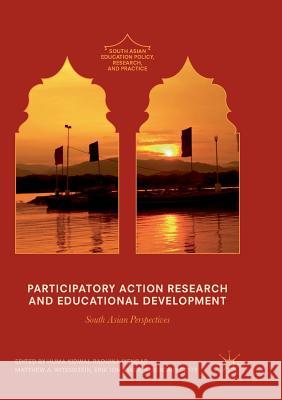Participatory Action Research and Educational Development: South Asian Perspectives » książka
topmenu
Participatory Action Research and Educational Development: South Asian Perspectives
ISBN-13: 9783319840437 / Angielski / Miękka / 2018 / 290 str.
Kategorie:
Kategorie BISAC:
Wydawca:
Palgrave MacMillan
Seria wydawnicza:
Język:
Angielski
ISBN-13:
9783319840437
Rok wydania:
2018
Wydanie:
Softcover Repri
Ilość stron:
290
Waga:
0.38 kg
Wymiary:
21.01 x 14.81 x 1.7
Oprawa:
Miękka
Wolumenów:
01
Dodatkowe informacje:
Wydanie ilustrowane











